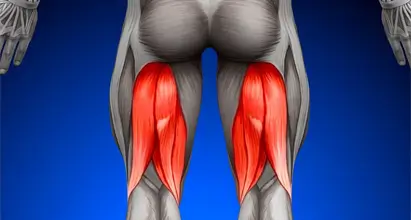Diet, microbiome and weight loss
A new study by researchers from Arizona State University and their colleagues highlights a dietary strategy for significant health improvement and weight management. Participants following an intermittent fasting and protein-pacing regimen, which involves evenly spaced protein intake throughout the day, saw better gut health, weight loss, and metabolic responses. These benefits were notably greater than those seen with simple calorie restriction. The findings, reported today in the journal Nature Communications, could advance our understanding of the relationship between the gut microbiome and metabolism and improve strategies for managing obesity.
The researchers compared the effects of two low-calorie dietary interventions: a heart-healthy continuous calorie-restricted diet (based on USDA dietary recommendations) and a calorie-restricted regimen incorporating intermittent fasting and protein pacing. The trial was conducted with 41 overweight or obese individuals over eight weeks. Individuals in the intermittent fasting and protein-pacing group showed a decrease in symptoms of gastrointestinal problems and an increase in the diversity of the gut microbiota compared with those in the calorie-restriction group.
The intermittent fasting protocol increased beneficial microbes in the gut that have been linked to a lean body type and improved overall health. Additionally, it increased the levels of certain proteins (cytokines) in the blood associated with weight loss, as well as amino acid byproducts that promote fat burning. Intermittent fasting is an eating pattern that cycles between periods of fasting and eating. The method has recently gained popularity for its potential health benefits, including weight loss, improved metabolic health, and enhanced brain function.
Study and findings
The clinical trial involved 27 female and 14 male participants who were overweight or obese. Participants were divided into two groups: one following the intermittent fasting and protein pacing regimen, and the other adhering to a heart-healthy, calorie-restricted diet. Both groups were monitored over eight weeks for changes in weight, body composition, gut microbiome composition and plasma metabolomic signatures.
Participants following the intermittent fasting and protein pacing regimen experienced a significant reduction in gut symptoms and an increase in beneficial gut bacteria, particularly from the Christensenellaceae family. The study also found these microbes are associated with improved fat oxidation and metabolic health. In contrast, the calorie-restricted group showed an increase in metabolites linked to longevity-related pathways.
Despite both groups having similar average weekly energy intake, the intermittent fasting and protein pacing group achieved greater weight loss and fat reduction with an average loss of 8.81% of their initial body weights during the study. In comparison, those on a calorie-restricted diet lost an average of 5.4% body weight. Participants who followed the intermittent fasting and protein-pacing diet experienced reductions in overall body fat, including belly fat and deep abdominal fat, and saw an increase in the percentage of lean body mass. The study underscores the potential of intermittent fasting and protein-pacing diets in improving gut health and weight management. While further research is necessary, these findings offer a promising avenue for creating effective dietary interventions for obesity and related metabolic disorders. Additional institutions contributing to the study: Systems Precision Engineering and Advanced Research (SPEAR); Center of Translational Science, Florida International University; Isagenix International LLC; and the School of Health and Rehabilitation Sciences, Department of Sports Medicine and Nutrition, University of Pittsburgh.




